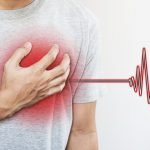At first, I wasn’t going to write anything about the series of recent studies that have caused the powers that be in the medical community to suddenly look with disfavor on the use of daily, low-dose aspirin for preventing heart disease. After all, I’ve been saying the same thing for several decades. What was I going to write other than:
- Told you so?
- Or, it’s about time, medical community?
But then I saw all the comments that appeared on the various websites that published the results of these studies. I found them concerning and knew they needed to be addressed.
But first, let’s look at the series of studies that unleashed such a torrent of anger, disbelief, and mockery in the population at large. Then we can address the anger, disbelief, and mockery itself–keeping in mind that most people didn’t see all these studies–just one of them and based all their conclusions about aspirin on that one study.
So, with that in mind, let’s look at the studies.
Millions and millions and millions of people around the world have been taking daily, low-dose aspirin for decades because the medical community has told them that this will prevent heart attacks and strokes. After all, taking aspirin is easy to do (a whole lot easier than losing weight, exercising, and eating healthy), costs just pennies, and almost every doctor recommends it to their patients–especially their elderly patients. It is thought by the medical community that aspirin’s anti-inflammatory properties help delay the onset or progress of some diseases (especially heart disease) over a long period. In truth, however, this theory has not been proven. In fact, information on the use of aspirin to increase healthy independent lifespans in older persons is quite limited. The bottom line is that whether 5 years of daily low-dose aspirin therapy can extend disability-free life in healthy seniors is–surprise, surprise–unclear.
This question was answered in five studies and one set of guidelines that were released in three devastating blows from September 2018 through March 2019.
First Blow: Aspirin Doesn’t Help, and It Does Increase Gastrointestinal Bleeding
 The first blow was the large observational ASPREE Study (Aspirin in Reducing Events in the Elderly), which was initiated in 2010 and involved participants in Australia and the US. It focused on the efficacy and safety of daily, low-dose aspirin in the elderly for the prevention of a range of disabilities, including heart disease, and the results were published last fall in The New England Journal of Medicine.1 John J. McNeil, Robyn L. Woods, Mark R. Nelson, et al. for the ASPREE Investigator Group. “Effect of Aspirin on Disability-free Survival in the Healthy Elderly.” N Engl J Med 2018; 379:1499-1508. http://www.nejm.org/doi/full/10.1056/NEJMoa1800722 (We first talked about this study last October.)
The first blow was the large observational ASPREE Study (Aspirin in Reducing Events in the Elderly), which was initiated in 2010 and involved participants in Australia and the US. It focused on the efficacy and safety of daily, low-dose aspirin in the elderly for the prevention of a range of disabilities, including heart disease, and the results were published last fall in The New England Journal of Medicine.1 John J. McNeil, Robyn L. Woods, Mark R. Nelson, et al. for the ASPREE Investigator Group. “Effect of Aspirin on Disability-free Survival in the Healthy Elderly.” N Engl J Med 2018; 379:1499-1508. http://www.nejm.org/doi/full/10.1056/NEJMoa1800722 (We first talked about this study last October.)
From 2010 through 2014, participants were enrolled who were 70 years of age or older (or ≥65 years of age among blacks and Hispanics in the United States) and did not have cardiovascular disease, dementia, or physical disability. Participants were randomly assigned to receive 100 mg per day of enteric-coated aspirin or placebo orally. The primary end point was a composite of death, dementia, or persistent physical disability. Secondary end points reported in this article included the individual components of the primary end point and major hemorrhage. A total of 19,114 persons with a median age of 74 years were enrolled, of whom 9525 were randomly assigned to receive aspirin and 9589 to receive placebo.
The trial was terminated at a median of 4.7 years of follow-up after a determination was made that participants would receive no benefit with continued aspirin use, at least regarding the primary end point. The rate of the composite of death, dementia, or persistent physical disability was 21.5 events per 1000 person-years in the aspirin group and a slightly–albeit statistically insignificant–lower figure of 21.2 per 1000 person-years in the placebo group. Additionally, differences between the aspirin group and the placebo group once again favored the placebo group–at a statistically insignificant level–with regard to the secondary individual end points of death from any cause (12.7 events per 1000 person-years in the aspirin group and 11.1 events per 1000 person-years in the placebo group). But more statistically significant and shocking was the fact that the rate of major hemorrhage was 36% higher in the aspirin group than in the placebo group (3.8% vs. 2.8%).
To put it in simple terms, the study’s conclusion stated:
“Aspirin use in healthy elderly persons did not prolong disability-free survival over a period of 5 years but led to a higher rate of major hemorrhage than placebo.”
So much for any benefits of low-dose aspirin in terms of heart disease or any of its related disabilities. In the service of full disclosure, it is true that some recent studies suggest that taking aspirin for 4 to 5 years may reduce the incidence and spread of some cancers, such as bowel cancer, but that was outside the scope of this study. And any benefits in this regard, if in fact real, would not be seen until many years down the road. (More on this later.)
These results do not stand in isolation. They parallel those seen in the ARRIVE study (i.e., no benefits and increased risk of bleeding) published in The Lancet just one month earlier in September of 2018.2 J Michael Gaziano, Carlos Brotons, Rosa Coppolecchia, et al. “Use of aspirin to reduce risk of initial vascular events in patients at moderate risk of cardiovascular disease (ARRIVE): a randomised, double-blind, placebo-controlled trial.” The Lancet. volume 392, ISSUE 10152, P1036-1046, September 22, 2018. http://www.thelancet.com/article/S0140-6736(18)31924-X/fulltext ARRIVE was a randomized, double-blind, placebo-controlled study that assessed over 12,500 subjects with several cardiovascular risk factors–including high cholesterol and high blood pressure–who took a daily aspirin (100 mg) or placebo to determine the safety and efficacy of aspirin use in subjects with a moderate estimated risk of having a first cardiovascular event. Over 5 years, the incidence of heart attacks or related events were not lower in those taking regular aspirin. And while the incidence of gastrointestinal bleeding was low, it was, nevertheless, twice as common in those taking regular aspirin vs those taking placebo. (Note: the study excluded patients at high risk of gastrointestinal bleeding or other bleeding.)
Second Blow: Aspirin Does Not Reduce Mortality and It Profoundly Increases Major Bleeding Events
The second mortal blow to the use of low-dose aspirin came on January 22, 2019, when the Journal of the American Medical Association published the results of a study that found that taking aspirin on a regular basis to prevent heart attacks and strokes can lead to an increased risk of almost 50% in major bleeding episodes.
While there is at least some evidence that aspirin may reduce risks for those who have previously suffered strokes and heart attacks, the evidence of the role of aspirin in the initial prevention of cardiovascular events, is “uncertain” to say the least. This study, then, was a systematic review and meta-analysis from researchers at King’s College London and King’s College Hospital.3 Sean L. Zheng, Alistair J. Roddick. “Association of Aspirin Use for Primary Prevention With Cardiovascular Events and Bleeding Events: A Systematic Review and Meta-analysis.” JAMA, 2019; 321 (3): 277-287. http://jamanetwork.com/journals/jama/article-abstract/2721 It looked at 13 trials with a combined total of 164,225 participants who had no signs of cardiovascular disease when they entered their particular trial, and the trials included a follow-up after twelve months. Participants included those who took aspirin and others who took a placebo or had no treatment at all.
The results showed that:4 News Centre. “Frequent use of aspirin can lead to increased bleeding.” KIngs College of London. 22 January 2019. (Accessed 30 Mar 2019.) http://www.kcl.ac.uk/news/news-article?id=8006cceb-841c-485c-abb2-b787f28a2025
- Aspirin use was associated with an 11% lower risk of cardiovascular events.
- To put this in more easily understandable terms, approximately 250 patients needed to be treated with aspirin for 5 years to prevent a single heart attack, stroke, or cardiovascular death.
- Aspirin use was associated with a 43% increased risk of major bleeding events, compared to those who did not take it.
- Approximately one in 200 people treated with aspirin had a major bleed.
- No effect was seen with aspirin on new cancer diagnoses or deaths.
In a University news release, lead author, Dr Sean Zheng, Academic Clinical Fellow in Cardiology at King’s College London said: “This study demonstrates that there is insufficient evidence to recommend routine aspirin use in the prevention of heart attacks, strokes, and cardiovascular deaths in people without cardiovascular disease.
“There has been more uncertainty surrounding what should be done in patients who are at higher risk of cardiovascular disease and in patients with diabetes. This study shows that while cardiovascular events may be reduced in these patients, these benefits are matched by an increased risk of major bleeding events.”
These results paralleled the results found In the ASCEND study that was published in the New England Journal of Medicine in October of 2018.5 “Effects of Aspirin for Primary Prevention in Persons with Diabetes Mellitus.” The ASCEND Study Collaborative Group. N Engl J Med 2018; 379:1529-1539. http://www.nejm.org/doi/full/10.1056/NEJMoa1804988 In that study, over 15,000 participants with diabetes took daily aspirin (100 mg) or matching placebo for an average of 7.4 years. The researchers found that for every 1,000 patients taking aspirin, 11 avoided heart attack, stroke, mini-stroke, or cardiovascular-related mortality. But, 9 of every 1,000 participants also had bleeding serious enough to cause hospitalization or death.
Third Blow: The Coup de Grace
And then on March 17, 2019, the American College of Cardiology and the American Heart Association dealt the coup de grace.
The ACC/AHA Task Force on Clinical Practice Guidelines commissioned this guideline to consolidate existing recommendations and various recent scientific statements, expert consensus documents, and clinical practice guidelines into a single guidance document focused on the primary prevention of Atherosclerotic Cardiovascular Disease (ASCVD)–including newly generated, specific recommendations for aspirin use. Those recommendations stated:6 A report of the American College of Cardiology/American Heart Association Task Force on Clinical Practice Guidelines. “2019 ACC/AHA Guideline on the Primary Prevention of Cardiovascular Disease.” American College of Cardiology. 2019. http://www.onlinejacc.org/sites/default/files/additional_assets/guidelines/Prevention-Guidelines-Made-Simple.pdf
- Low-dose aspirin (75-100 mg orally daily) MIGHT be considered for the primary prevention of ASCVD among select adults 40 to 70 years of age who are at higher ASCVD risk but not at increased bleeding risk.
- Low-dose aspirin (75-100 mg orally daily) should not be administered on a routine basis for the primary prevention of ASCVD among adults >70 years of age.
- Low-dose aspirin (75-100 mg orally daily) should not be administered for the primary prevention of ASCVD among adults of any age who are at increased risk of bleeding.
In other words, taking a low-dose aspirin every day to prevent a heart attack or stroke is no longer recommended for most older adults, according to the guidelines. After doctors have almost universally proclaimed for decades that a daily dose of 75 to 100 milligrams of aspirin could prevent cardiovascular problems, while at the same time presenting minimal risk, this represents a startling about face.
The Guidelines went on to state that whereas low-dose aspirin was no longer recommended, lifestyle changes were. Some of the key lifestyle recommendations include engaging in regular exercise (at least 150 minutes of moderate-intensity activity each week); aiming for and maintaining a healthy weight; avoiding tobacco (including vaping or second-hand smoke); and eating healthier by choosing more vegetables, fruits, legumes, nuts, whole grains, and fish, while limiting trans fats, added sugars, red meats, sodium and saturated fats.
In a simultaneous statement, also published by the American College of Cardiology, Roger S. Blumenthal, MD, co-chair of the 2019 Guidelines, said, “The most important way to prevent cardiovascular disease … is by adopting heart healthy habits and to do so over one’s lifetime.7 ACC News Story. “ACC/AHA Primary Prevention Guideline Provides Playbook For Managing CV Risk Factors.” American College of Cardiology. Mar 17, 2019. http://www.acc.org/latest-in-cardiology/articles/2019/03/08/15/32/sun-2pm-acc-aha-release-first-guideline-primary-prevention-cvd-gl-prevention More than 80 percent of all cardiovascular events are preventable through lifestyle changes, yet we often fall short in terms of implementing these strategies and controlling other risk factors.”
He went on to state, “Clinicians should be very selective in prescribing aspirin for people without known cardiovascular disease. It’s much more important to optimize lifestyle habits and control blood pressure and cholesterol as opposed to recommending aspirin.”
Both the ACC and AHA say regular exercise, maintaining a healthy weight, avoiding tobacco, and eating a diet rich in vegetables and low in sugar and trans fats are among the best ways to prevent cardiovascular disease.
The Comments
Needless to say, with the population at large having invested so much in their belief that taking daily, low-dose aspirin would keep them alive and healthy, online comments on these studies were impassioned–both in anger and denial–to put it mildly. And in some ways, very concerning. In fact, it is the comments that inspired me to write this newsletter. (Note: these comments were taken from a half dozen different sites that published the results of the Guidelines and four studies cited above.)
With that in mind, let’s look at some, and, along the way, I’ll talk about my concerns as they relate to those comments.
I Haven’t Read Any of the Actual Studies–Just an Article About One of Them–but I Don’t Believe What I’ve Read
Commenter 1
“Given that there are a number of variables, I don’t think this study means too much. I suspect that a number of these people [study participants] were also taking other medications or eating foods that could also thin the blood. Statistics is a tool and is usually misapplied. Statistics require unbiased random data from a large enough sample using the right variables and weighing them correctly. Sadly, this seldom happens. This leads to major errors at best and manipulation at worst.”
I’ve explained before why relying on a write up about a study may totally misrepresent the study itself. The reporter doing the write up may, themselves, not even have read the study they are writing up for your edification–instead relying on a newswire summary of the study. Also, in a write up, you will never get the details about how the study sorted out the different variables.
Commenter 2
“Someone correct me if I read this wrong. Taking Aspirin works…Possible Internal Bleeding may occur…Heart Attack and Stroke Can kill you. Let me weigh that out a second. Works, May, Can.”
I’ve also explained why relying on a single study is a dubious proposition. In the end, individual clinical trials should be considered as divining rods that at best point us in the direction of important conclusions. Incidentally, this commenter totally misunderstood the results of the study.
Commenter 3
“Here we go again. Another statistical study that doesn’t include several important variables such as other medications, diet, sex, ethnicity, family history, smoking, alcohol or age. Statistics is only a tool that must be used properly. Unfortunately, many learned people have no idea how to use it properly or understand that it seldom if ever proves anything. The math DOES NOT purify the data. At best it can lead to errors in interpretation, and at worst it can be subject to manipulation. Probability calculations get even stranger. There is an old saying. The odds of plugging in a USB cable correctly are 50/50 but you will get it wrong 80% of the time on the first try.”
See response to Commenter 1 above.
Commenter 4
“I’ve seen numerous articles extolling the value of repeatability confirmation of scientific research. So, I hope this meta-study inspires someone to do a randomized controlled study to confirm its results.”
See responses to Commenters 1 and 2 above. Also, this entire newsletter deals with this issue. In fact, we’re not just talking about one study, but four studies that came out in rapid succession–and a major set of guidelines put out by the American College of Cardiologists and the American Heart Association.
Commenter 5
“I don’t get all this hand wringing about baby aspirin’s adverse effects. Isn’t that why coated pills were invented? I’ve been taking them for decades without any stomach issues. Regular long-term use of coated aspirin may sooner harm your kidney’s than your stomach.”
Except for the fact that the first study we talked about, the ASPREE Study was based on enteric-coated aspirin. And based on that study, you have a 36% better shot of having a major intestinal hemorrhage than experience harm to your kidney. Incidentally, people seem to think it’s the acid in aspirin that causes problems so that buffering that acid will resolve all issues. That’s not true. The acid impact of low-dose aspirin in a stomach filled with hydrochloric acid is negligible. The problem is that the aspirin chemically blocks prostaglandin production, which causes the mucosal lining of the intestinal tract to break down, thus leaving both the stomach and intestinal tract unprotected.8 Wallace JL. “Prostaglandins, NSAIDs, and gastric mucosal protection: why doesn’t the stomach digest itself?.” Physiol Rev. 2008 Oct;88(4):1547-65. http://www.physiology.org/doi/full/10.1152/physrev.00004.2008?url_ver=Z39.88-2003&rfr_id=ori%3Arid%3Acrossref.org&rfr_dat=cr_pub%3Dpubmed& Buffering has zero effect on that–and has, in fact, has been proven to have only marginal benefits at best.9 Linnoila M, Lehtola J. “Absorption, and effect on gastric mucosa, of buffered and non-buffered tablets of acetylsalicylic acid.” Int J Clin Pharmacol Biopharm. 1977 Feb;15(2):61-4. http://www.ncbi.nlm.nih.gov/pubmed/885664
Commenter 6
“For a person who had a stroke at the ripe old age of 45, 8 years ago, this article sets a dangerous precedent. Everyone is different, and the reason for taking any medications including aspirin should be at the advice of their medical professional – not AHA. I currently take 325 mg a day and will continue to do so until my licensed cardiologist tells me no. As a side note – aspirin is safer than warfarin, less costly and you do not need blood tests every 4 to 6 weeks.”
The American College of Cardiologists and the American Heart Association are not comprised of random lay people. They are comprised largely of medical doctors and researchers who specialize in the heart. They’re the ones who inform your cardiologist of current best practices…if he stays current on what’s happening. Unfortunately, as we’ve explained before, 90% of doctors do not.
Okay, but What About Cancer?
Commenter 1
“We were told to take low dose aspirin to help prevent certain types of cancer. What about that?”
Back in 2011, I explained why trying to prevent cancer by taking aspirin is like plugging a leaky dike with your finger. Its short-term effectiveness is highly questionable (based more on storytelling than hard science), and its long-term effectiveness is pretty much doomed since it doesn’t address any of the major contributing factors to the onset of cancer. And if that’s not good enough for you, both the ASPREE study and the JAMA study listed above (Second Blow) found no cancer benefit associated with low-dose aspirin.
Commenter 2
“I know I read in the last year that a study found that taking low dose aspirin had lower rates of cancer across the board???”
See response to Commenter 1 above.
I Know the Truth Based on My Personal Experience
Commenter 1
“About 20 years or so ago I read an article in Men’s Health that reported many heart doctors were taking an aspirin a day along with eating a healthy diet and exercise. I’ve been doing the same since and at my yearly physical my doctor keeps telling me to keep doing whatever I’ve been doing because it works for me. I’m 69 and power walk daily and am in better shape than most people 10 or 20 years younger. I’ll keep doing the daily aspirin.”
Generalizing about health based on one person’s results, even if that one person is you, is dubious at best. As I explained in Lessons from the Miracle Doctors, we’ve all heard stories of the man who smoked and drank like a fiend for eighty years, was never sick a day in his life, but died at the hands of a jealous husband who shot the old letch when he discovered him in bed with his twenty-year-old wife. These things happen. But no reasonable person would say this makes sense as a lifestyle for most people. The other problem with generalizing based on your own experience is that you don’t get to control for variables. For example, with this commenter, is the aspirin contributing to his good health, or is it all based on his healthy diet and power-walking exercise? In other words, his personal experience, in isolation, tells us nothing about the value of aspirin.
Commenter 2
“I am a heart patient (bypass 19 years ago and an attack after surgery 6 years ago and A fib) and 75 and have been and still take low dose every day. It is working for me.”
See respone to Commenter 1 above. Also, considering that you’ve had a heart attack, surgery, and A fib since going on low-dose aspirin 19 years ago, is it really workng for you?
Commenter 3
“My husband takes it daily to prevent another stroke, the risk outweighs the possibility of another stroke. He doesn’t think he can survive it again. Took everything he had to come back and learn to walk, talk, and function again.”
But if aspirin doesn’t help prevent stroke and something else such as systemic proteolytic enzymes does, but you don’t use them because you’re relying on aspirin, then where does the risk really lie?
Commenter 4
“I had stents put in. I am on blood thinner and an aspirin dose until February 2020, which would be one year after the stents were implanted. I was told to stay on the 81mg aspirin dose for the rest of my life to prevent clots forming around the stents. Now I guess that will change. I know right now I have to continue with the blood thinner and aspirin. A clot is worse than internal bleeding.”
See responses to Commenters 1, 2, and 3 above.
Commenter 5
“Thank you. I control my own health at age 81 with no prescription drugs. Will continue to take chewable low dose aspirin, 1 a day. Chewable avoids internal bleeding and is absorbed well.”
Sorry, not true. Although chewable aspirin is more rapidly absorbed than a swallowed aspirin tablet, it can absolutely irritate the stomach and intestines and cause internal bleeding.10 “Bayer Chewable Aspirin Side Effects by Likelihood and Severity.” WebMD. (Accessed 31 Mar 2019.) http://www.webmd.com/drugs/2/drug-162824/bayer-chewable-low-dose-aspirin-oral/details/list-sideeffects
Commenter 6
“I work in an ER and have never seen aspirin as a cause for any kind of bleeding. Most older adults do have risk factors for stroke and heart attacks secondary to atherosclerosis. Hard to believe they are taking this stance.”
I have a hard time believing this person works in an ER. (Remember, on the internet unvetted commenters can claim anything they want.) Bleeding from aspirin is a known quantity within the medical community. Even the smallest dose of aspirin will cause some degree of micro-bleeding, which by definition will not be visible to the naked eye.11 “Even Low Dose of Aspirin Can Cause Intestinal Bleeding.” WebMD Nov 9, 2000. (Accessed 31 Mar 2019.) http://www.webmd.com/drug-medication/news/20001109/even-low-dose-of-aspirin-can-cause-intestinal-bleeding#1 And, as pointed out in the four studies above, a certain percentage of people (small though it may be) who use daily, low-dose aspirin will suffer from hemorrhaging and even death. Someone who truly worked in an ER would know this.
It’s All About the Benjamins
Commenter 1
“News Flash!!! aspirin costs $4.00 per month (Low profit) Eliquis costs $450.00 per month (big profit). It doesn’t take a genius to figure this out”
I certainly have called the pharmaceutical industry to task for its greed many, many times before. But News Flash! Bayer aspirin is not just an aspirin company. They are a pharmaceutical giant that recently bought Monsanto for $63 billion dollars. They are hardly suffering by selling high-profit bottles of aspirin to millions, and millions, and millions of people throughout the world who have been convinced to take daily, low-dose aspirin in the false hope that it’s protecting them from heart attacks. You don’t have to be a genius to figure out that if Bayer wasn’t making a huge profit selling aspirin, they wouldn’t be spending so much money advertising it.
Commenter 2
“An 81mg aspirin per day hinders the creation of platelets. The aspirin serves as a blood thinner. Pharmaceutical controlled doctors have been against the cheap little aspirin for decades. They have to get their kickback checks.”
Sorry, physicians don’t get kickbacks for writing prescriptions. It’s illegal based on several statutes–especially for Medicare and Medicaid patients. On the other hand, they get around that by receiving perks for attending seminars and trainings arranged by the pharmaceutical companies. And pharmaceutical companies certainly spend money to influence study results in their favor. Which brings us to aspirin. And as we just discussed in our response to Commenter number 1 above, Bayer is a multi-billion-dollar pharmaceutical company. Who do you think was behind pushing the use of low-dose aspirin for heart health?
Commenter 3
“Since aspirin is readily available for purchase over the counter and relatively cheap it has been recommended by pharmaceutical manufacturers and suppliers to have doctors that distribute their products tell everyone that it is not an effective way to avoid strokes and heart attack but instead to use more costly medications that are available from XYZ pharmaceutical companies. There, I gave you what should have been the initial statement.”
Yes, it is about the Benjamins, but see response to Commenters 1 and 2 above. The pharmaceutical companies are not losing anything. They’re simply moving money between divisions.
Commenter 4
“Aspirin is recognized as the ‘goto defense’ mechanism of many plant varieties. So pervasive is it that our gut has evolved to utilize aspirin to signal pre-cancerous cells to perform “Apoptosis” or cell death before becoming fully cancerous. Just another mechanism. But as gut cancers are increasing, perhaps somebody would care to work out the significance of the overall reduction in aspirin consumption over the last 100 years of sweetness selection and the rate of increase of gut cancer? Of course, it is an open-ended set of variables. That is the point being made, but since studies are trying to pave the way for Big-Pharma products to replace common remedies, the baby is constantly being thrown out with the data? I do hope this helps!”
This commenter is surprisingly well informed. Salicylic acid and related compounds are produced by plants as part of their defense systems against pathogen attack and environmental stress.12 Duthie GG1, Wood AD. “Natural salicylates: foods, functions and disease prevention.” Food Funct. 2011 Sep;2(9):515-20. http://www.ncbi.nlm.nih.gov/pubmed/21879102 Salicylates are widely distributed throughout the plant kingdom. Major food sources are tomato-based sauces, fruit and fruit juice, tea, wine, and herbs and spices. But the primary source is white willow bark. Nevertheless, you need to read 1 and 2 above. (For more on the fundamental nature of salicylic acid and how it differs from commercial aspirin, click here.)
I Don’t Trust Doctors or Their Studies. I Trust Nature
Commenter 1
“My doctors recommended daily aspirin for me because of my cholesterol level back in 2004. Glad I never started that up. I always think that doctors get on the bandwagon when prescribing drugs to people. My cholesterol has been under control and even gotten better over the years, but I still can’t get them to stop prescribing the statin.”
I think this commenter is just a tad confused. No doctor would recommend aspirin for cholesterol–statins yes, aspirin no. But that aside, it is true that doctors get on the bandwagon when new drugs or protocols go mainstream. Unfortunately, those same doctors are much, much slower to let go of these ideas once new research calls those recommendation into question. Sometimes it can take decades for doctors to change course on a discredited theory. (Incidentally, since Commenter 1 mentioned statins, it’s probably worth pointing out that statin drugs fall into this category as well–with more and more doctors saying they don’t work, and the old guard desperately holding on.)
Commenter 2
“I’m not really bad mouthing the pursuit of medical knowledge and advancement, but It always seems the initial recommendations of doctors (after long periods of medical or clinical study) change almost 180 degrees from what was originally recommended.
- Take aspirin; don’t take aspirin
- Eat eggs; don’t eat eggs
- Drink alcohol; don’t drink alcohol
- Eat butter; don’t eat butter
- Eat fish; don’t eat fish
- Etc.”
This is true and, unfortunately, may be the most disturbing comment of them all. What it says is that the medical community has lost credibility with large segments of the world’s population so that people now feel inclined to distrust anything that comes from it. And that’s frightening. Now, I would suggest that, to a large degree, the medical community has done this to themselves. The organizations that represent doctors are part of a marketing machine that has oversold many medical successes and undersold the risks associated with those successes. For example, it was not too long ago that they wholeheartedly embraced OxyContin for treating pain—to the tune 219 million prescriptions a year. How did that work out? Hormone replacement therapy also comes to mind. Now low-dose aspirin. And, eventually, we will see statin drugs added to the list. Quite simply, the medical community has too frequently jumped on the bandwagon of bad research–just because it seemed to be a good idea at the time.
Look, this is an alternative health website, and to be sure, over the years, I’ve tweaked medical doctors in my newsletters and blogs. But truth be told, and as I have said many times before, unlike many in the alternative health community, I’m a huge fan of doctors — not so much the medical organizations that represent them — but the doctors themselves. Yes, there are doctors who are incompetent or unethical, but most medical doctors I have met in my life are extremely competent, highly dedicated, and often even heroic. And make no mistake, no matter how into alternative health you are, there are times you absolutely need a doctor. If your name is John Wayne Bobbitt, you need a doctor, not an herbalist, after your wife “adjusts” you. (And for those of you who are Millennials and don’t remember John Wayne Bobbitt,13 http://en.wikipedia.org/wiki/John_and_Lorena_Bobbitt you can substitute “catastrophic Uber accident.”
Commenter 3
“As most drugs today are chemically synthesized. I wonder if the natural aspirin derived from willow bark has the same problems. This is something that needs to be studied. As a child in Europe I used to get a tea made from willow bark to help with colds and pain and it worked well. We also used quinine as a tea to combat fevers. Another product no longer available. Maybe we need to go back to the non-engineered versions of some drugs.”
We have already discussed this issue, but keep in mind that even if natural white willow bark is less likely to cause internal bleeding, it’s no more likely to be helpful with heart disease, or any of the other disabilities the researchers looked at. I like white willow bark, but the problem in this case is that the theory itself of how aspirin helps is flawed. Shifting from a synthesized to a natural source won’t change that.
Conclusion
As I first stated several decades ago, daily, low-dose aspirin is unlikely to be helpful in protecting you from any of the disabilities associated with aging, but it will always cause internal bleeding–both viewpoints that the medical community has now come around to. And yes, even one low-dose aspirin tablet will cause bleeding, although at the micro level. Quite simply, it damages the mucosal lining of the intestinal tract, which causes micro-bleeding of the underlying tissue. Micro-bleeding means that you will never be able to see any sign of blood in your stools with the naked eye. It’s not like a cut or a wound that drips or gushes blood. It’s more like the intestinal wall “sweats” blood. However, in some cases, in those susceptible to it, that micro-bleeding can become full on hemorrhaging, which can send you to the hospital or even kill you. As to which happens to you, that’s just a question of odds. Or as Clint Eastwood used to say, “How lucky do you feel?”‘
But the key point to remember here is that there’s no benefit in taking the risk. If nothing else, this is what you want to take away from today’s newsletter. If you’ve never had a heart issue before, studies are now overwhelmingly showing there is no benefit to taking daily, low-dose aspirin. And even if you’ve had a problem, the so-called benefit is minimal at best—-and even that evidence of benefit is based on limited studies. What we now know is that for most people, and especially the elderly, there is no benefit at all to daily aspirin. In fact, if anything, the numbers lean slightly in favor of placebos over aspirin.
So, what about all those who swear that daily, low-dose aspirin has kept them healthy? It’s not true. The science now says you would have been just as healthy if you had been taking a placebo instead. People have simply committed themselves to a coincidental association. There is no cause and effect. For example, Robert Kraft could just as easily say that he has never had a heart attack while enjoying the health benefits of a deep massage with a happy ending. And he doesn’t care what the Florida police say; he’s going to continue to partake of those health benefits.Yes, it too would be a coincidental association. That said, he’d have a stronger scientific case than those taking aspirin. Study after study is now proving that aspirin is not helpful. But a massage with a happy ending relieves stress. And stress is a known risk factor for heart attacks and stroke. Just sayin!

References
| ↑1 | John J. McNeil, Robyn L. Woods, Mark R. Nelson, et al. for the ASPREE Investigator Group. “Effect of Aspirin on Disability-free Survival in the Healthy Elderly.” N Engl J Med 2018; 379:1499-1508. http://www.nejm.org/doi/full/10.1056/NEJMoa1800722 |
|---|---|
| ↑2 | J Michael Gaziano, Carlos Brotons, Rosa Coppolecchia, et al. “Use of aspirin to reduce risk of initial vascular events in patients at moderate risk of cardiovascular disease (ARRIVE): a randomised, double-blind, placebo-controlled trial.” The Lancet. volume 392, ISSUE 10152, P1036-1046, September 22, 2018. http://www.thelancet.com/article/S0140-6736(18)31924-X/fulltext |
| ↑3 | Sean L. Zheng, Alistair J. Roddick. “Association of Aspirin Use for Primary Prevention With Cardiovascular Events and Bleeding Events: A Systematic Review and Meta-analysis.” JAMA, 2019; 321 (3): 277-287. http://jamanetwork.com/journals/jama/article-abstract/2721 |
| ↑4 | News Centre. “Frequent use of aspirin can lead to increased bleeding.” KIngs College of London. 22 January 2019. (Accessed 30 Mar 2019.) http://www.kcl.ac.uk/news/news-article?id=8006cceb-841c-485c-abb2-b787f28a2025 |
| ↑5 | “Effects of Aspirin for Primary Prevention in Persons with Diabetes Mellitus.” The ASCEND Study Collaborative Group. N Engl J Med 2018; 379:1529-1539. http://www.nejm.org/doi/full/10.1056/NEJMoa1804988 |
| ↑6 | A report of the American College of Cardiology/American Heart Association Task Force on Clinical Practice Guidelines. “2019 ACC/AHA Guideline on the Primary Prevention of Cardiovascular Disease.” American College of Cardiology. 2019. http://www.onlinejacc.org/sites/default/files/additional_assets/guidelines/Prevention-Guidelines-Made-Simple.pdf |
| ↑7 | ACC News Story. “ACC/AHA Primary Prevention Guideline Provides Playbook For Managing CV Risk Factors.” American College of Cardiology. Mar 17, 2019. http://www.acc.org/latest-in-cardiology/articles/2019/03/08/15/32/sun-2pm-acc-aha-release-first-guideline-primary-prevention-cvd-gl-prevention |
| ↑8 | Wallace JL. “Prostaglandins, NSAIDs, and gastric mucosal protection: why doesn’t the stomach digest itself?.” Physiol Rev. 2008 Oct;88(4):1547-65. http://www.physiology.org/doi/full/10.1152/physrev.00004.2008?url_ver=Z39.88-2003&rfr_id=ori%3Arid%3Acrossref.org&rfr_dat=cr_pub%3Dpubmed& |
| ↑9 | Linnoila M, Lehtola J. “Absorption, and effect on gastric mucosa, of buffered and non-buffered tablets of acetylsalicylic acid.” Int J Clin Pharmacol Biopharm. 1977 Feb;15(2):61-4. http://www.ncbi.nlm.nih.gov/pubmed/885664 |
| ↑10 | “Bayer Chewable Aspirin Side Effects by Likelihood and Severity.” WebMD. (Accessed 31 Mar 2019.) http://www.webmd.com/drugs/2/drug-162824/bayer-chewable-low-dose-aspirin-oral/details/list-sideeffects |
| ↑11 | “Even Low Dose of Aspirin Can Cause Intestinal Bleeding.” WebMD Nov 9, 2000. (Accessed 31 Mar 2019.) http://www.webmd.com/drug-medication/news/20001109/even-low-dose-of-aspirin-can-cause-intestinal-bleeding#1 |
| ↑12 | Duthie GG1, Wood AD. “Natural salicylates: foods, functions and disease prevention.” Food Funct. 2011 Sep;2(9):515-20. http://www.ncbi.nlm.nih.gov/pubmed/21879102 |
| ↑13 | http://en.wikipedia.org/wiki/John_and_Lorena_Bobbitt |












I am 70 years old Indian Malaysian . I am aspirin 100daily for almost 7 years as I was stented I piece for a heart attack . All my blood reading are normal except diabetes hba1c is 7-7.5 last check up . I have frequent stomach trouble bloating nausea lack of appetite . My BP is 115/70 at times 100/60. Use to reflux burping burning sensation stomach occasionally . What shall 1 do . Thank you
For obvious legal reasons, we cannot diagnose or prescribe, merely provide information. That said, we highly recommend reading Jon Barron’s book to start taking a more natural approach to health through a series of steps and protocols. You can download it for free!